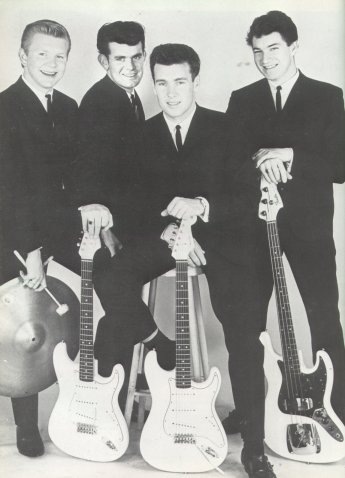Peter McLennan over at Dub Dot Dash has posted about the impending changes at EMI, and mused as to whether they will affect the NZ operation.
 Whilst there are no clear answers to that question (at least publicly), the clear answer is that of course they will. EMI seems to be the first of the major labels with the balls to face the inevitable and part of that inevitability is that branches which are smaller than the average US State sales offices, i.e. rather insignificant, will go, or at least be subservient to bigger regional offices. Already EMI Singapore has gone (with a bigger, But, I guess this is important, much more tech savvy population than NZ...thus greater broadband penetration and a more developed digital culture) and I suspect in the long run even Australia might be rolled into a grand Asian Pacific office logically controlled from Hong Kong.
Whilst there are no clear answers to that question (at least publicly), the clear answer is that of course they will. EMI seems to be the first of the major labels with the balls to face the inevitable and part of that inevitability is that branches which are smaller than the average US State sales offices, i.e. rather insignificant, will go, or at least be subservient to bigger regional offices. Already EMI Singapore has gone (with a bigger, But, I guess this is important, much more tech savvy population than NZ...thus greater broadband penetration and a more developed digital culture) and I suspect in the long run even Australia might be rolled into a grand Asian Pacific office logically controlled from Hong Kong.
For NZ this is doubly significant. Firstly because the company has, under current management, led by the highly regarded Chris Caddick, who I’ve been proud to call a friend for some 25 years, been a major player in releasing NZ music. It’s directly signed or licensed repertoire includes Hollie Smith, Goldenhorse, The Black Seeds and much much more. When it comes to mainstream NZ popular music, no-one comes close. And they’ve coupled that with a strong reissue program of their own and other’s classic NZ repertoire, in a time when, if they hadn’t bothered, it would be unavailable, which would be a crime.
Which brings us to the second point of significance, that of it’s history. EMI NZ’s huge local current catalogue is simply a continuation of the most important story and the most important record label in NZ’s history. From the early recordings, pressed in Australia, to Johnny Cooper (pictured above, who made the first rock'n'roll record outside the US) to Space Waltz, they mattered.
For much of it’s history, at least until the late 60s EMI, or HMV as it was known, was about 80% of the NZ recording industry. Not only did it distribute most of the international labels but, until Stebbings came along with Zodiac about 1959, despite some rather legendary indies like Tanza, HMV released the overwhelming bulk of NZ records. In the 1960s if you take Zodiac and HMV out of the picture then the strong NZ recording era becomes rather sad.
 In the 1960s and early 1970s HMV / EMI had in-house studios, legendary producer / A&R men like Peter Gable, Peter Dawkins and Alan Galbraith who left us a legacy of pop and psychedelia, much of which stands the test of time and is being intelligently compiled by the current company.
In the 1960s and early 1970s HMV / EMI had in-house studios, legendary producer / A&R men like Peter Gable, Peter Dawkins and Alan Galbraith who left us a legacy of pop and psychedelia, much of which stands the test of time and is being intelligently compiled by the current company.
From the mid seventies through to the early nineties EMI NZ ceased to be a major player in the local market, but under Caddick it once again thrived.
Will any of this legacy survive a devolution into a regional office? Probably not, which is sad but also sadly, as I said, inevitable.
For EMI, casting aside the legacy and the sentiment, and from a purely business point of view, now gains little from having an operating company office tucked away in an insignificant bump at the bottom of the world. Nothing that EMI has signed in NZ has contributed in any real way to the profits or standing of the global company and most of it’s physical sales of its ‘priority’ international acts can now be achieved by a sales and / or marketing team. Perhaps 2 or 3 people max. When survival is the issue, extravagates like an NZ stand alone can not be justified.
And neither do the other, what were called majors, need such, for the same reasons (only PolyGram / Universal have provided the parent company with any potential 'acts' over the years). But I suspect only EMI have yet had the balls to come to terms with what is a fairly obvious partial answer to the question: “What next?”.
But the others will. As a good friend with some inside knowledge said this week..
And so it begins........






1 comment:
I guess the question now is how will this affect NZ music? From a business point of view it's inevitable but how will it impact the industry and artists to have the major labels driven from another country? With the history of majors distributing indies over here will that aspect of the industry get pulled? I guess we'll wait and see. Thanks for the insight.
Post a Comment